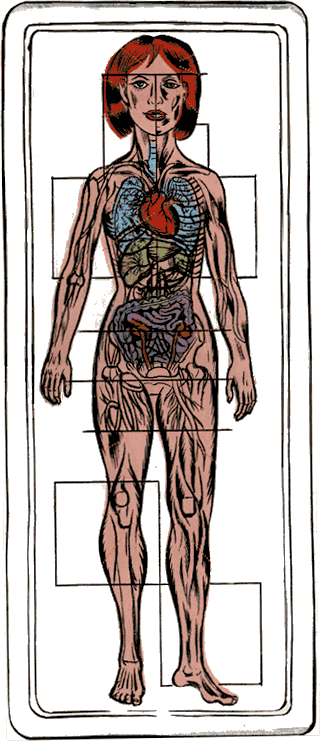| Baldness gene Patent pending Columbia University |
Alzheimer’s gene Patent 5,508,167 Duke University, licensed to Glaxo Wellcome |
Parkinson’s disease gene Patent pending National Human Genome Research Institution (National Institutes of Health) |
|
Brain cancer gene Blindness gene Premature aging gene Asthma gene High blood pressure gene Epilepsy gene Obesity gene Osteoporosis gene Melanoma gene |
 |
Glaucoma gene Cardiovascular disease gene Breast and ovarian cancer gene Colon cancer gene Arthritis gene Human Growth Hormone gene Iron overload gene |
Since the early 1990s fledgling genomic companies with enigmatic names such as Progenitor, Millennium Pharmaceuticals, and Darwin Molecular have been pinpointing and patenting human life with the help of $4.5 billion in investments from pharmaceutical companies. The science could lead to cures for cancer and many inherited diseases. But monopoly patents hinder that promise.
Myriad Genetics, for example, found a gene that causes inherited breast cancer and licensed the therapeutic development rights to Eli Lilly. Activists worry that exclusive patent rights over the gene could lead to more expensive gene screening tests and treatments. Patents give companies the right to determine who gets access to genes and at what price. Researchers express concern that exclusive patents will have a “chilling effect” on research and increase medical costs. Biotech companies say patents—and the resulting licensing fees—provide the key incentive for this research. But in Myriad’s own corporate literature, the firm candidly admits that its “broad and substantial proprietary estate” of breast cancer genes not only promises huge profits but keeps competitors at bay. “The identification and patenting of genes,” notes Myriad, “will present [competitors with] significant barriers to entry.”
illustration by Gary Panter
Research provided by the Rural Advancement Foundation International







